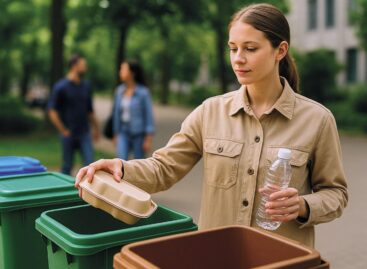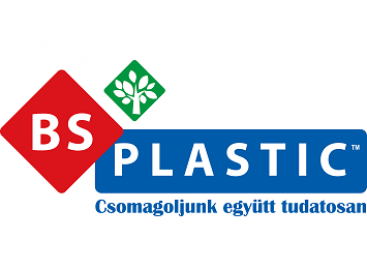A guide to plastic bags
From 1 July 2021 new rules enter into force for in-store plastic bags.

Guest author:
Izabella Bauer
sales manager
BS Plastic
Between 15 and 50 micrometres only biodegradable bags can be used. Bags thinner and thicker than these can be made of polyethylene and biodegradable material too. A HUF 1,900/kg product tax will be imposed on polyethylene bags and there will be a HUF 500/kg tax on the bio version.
How to choose?
It must be decided which version puts a smaller burden on the environment. It might be the polyethylene one if it is used several times and collected selectively after use. However, biodegradable bags have many benefits: they come from renewable sources, are perfect alternatives to classic plastic bags and their OK compost HOME certificate means they can be turned into biomass via home composting too – or they can be 100 percent recycled if collected selectively. Plus in Hungary there are several industrial composting facilities as well. From 31 December 2023 the European Union’s circular economy programme makes it obligatory to collect biowaste selectively or to manage it locally. (x)
Related news
Packaging market sitting on a roundabout
🎧 Hallgasd a cikket: Lejátszás Szünet Folytatás Leállítás Nyelv: Auto…
Read more >FECSO: industry dialogue for sustainable packaging
🎧 Hallgasd a cikket: Lejátszás Szünet Folytatás Leállítás Nyelv: Auto…
Read more >BS Plastic: Sustainable innovations lead in the plastics industry
🎧 Hallgasd a cikket: Lejátszás Szünet Folytatás Leállítás Nyelv: Auto…
Read more >Related news
Historic price reduction at ALDI
🎧 Hallgasd a cikket: Lejátszás Szünet Folytatás Leállítás Nyelv: Auto…
Read more >








